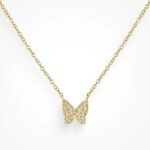
“Comprehensive Guide to Taoist Funeral Services in Singapore”
“📔 Get definitive insights with our Comprehensive Guide to Taoist Funeral Services in Singapore 🇸🇬 ✝️ Honor loved ones the Taoist way 🙏
In Singapore, a melting pot of cultures and traditions, the Taoist funeral is a poignant representation of how ancient beliefs are preserved and adapted in modern society. Taoism, a philosophical and religious tradition originating in China, deeply influences various aspects of life and death, including funeral rites. These ceremonies not only reflect Taoist principles but also highlight the harmonious blend of traditional practices with contemporary practices in Singaporean society.
Introduction to Taoist Funeral Traditions
Taoism, founded by the legendary figure Laozi, emphasizes living in harmony with the Tao, or the fundamental nature of the universe. If you wish to enquire with TLC for a Taoist funeral, the Taoist funeral is designed to ensure that the deceased embarks on their journey to the afterlife with peace and dignity, while also providing comfort and support for the living. This principle extends to the treatment of death, which is viewed as a transition rather than an end.
Rituals and Practices
The Taoist funeral in Singapore typically begins with a series of rituals performed at the family home or a designated funeral hall. The preparation of the body is a significant aspect, as it is believed to be a vessel for the soul. The body is washed and dressed in traditional garments, often with the assistance of Taoist priests who recite prayers and perform rites to cleanse and prepare the deceased for their journey.
One of the central rituals is the offering of paper money and other symbolic items, such as paper houses and clothes, which are believed to be needed by the deceased in the afterlife. These offerings are burned in a ceremonial fire, allowing the spirits to receive these items in the spiritual realm. Additionally, food offerings are made to honor and nourish the deceased’s spirit, reflecting the Taoist belief in providing for the dead as one would for the living.
A significant component of Taoist funerals is the use of chants and prayers. Taoist priests, dressed in ceremonial robes, lead the family through a series of prayers and incantations. These rituals are meant to guide the deceased’s spirit through the afterlife, ensuring they reach their destination safely and are protected from malevolent spirits.
The Role of the Family
In Taoist funerals, the role of the family is both crucial and deeply ritualistic. Family members are expected to observe certain mourning practices, such as wearing white clothing, abstaining from festive activities, and performing rituals of mourning. These practices are meant to show respect for the deceased and to signify the family’s grief and loss.
The family also participates in various ceremonies, including the procession to the cemetery. This procession is marked by the chanting of hymns and the burning of incense, creating a solemn atmosphere as the deceased is escorted to their final resting place. During the burial, additional rituals are performed, such as placing symbolic items in the grave and offering final prayers.
Modern Adaptations and Challenges
While traditional Taoist funeral practices are deeply rooted in cultural heritage, modern adaptations have emerged in response to contemporary needs and sensibilities. In Singapore, where space is limited and cremation is more common than burial, Taoist funeral rites have been adapted to fit these practical considerations.
Cremation ceremonies now play a central role, and Taoist rituals are modified to accommodate this practice. For instance, the burning of paper offerings is done in crematoriums rather than at traditional burial sites. Furthermore, modern funeral homes and services often provide packages that integrate Taoist rites with contemporary amenities, ensuring that traditional practices are respected while addressing modern needs.
Challenges arise when integrating traditional Taoist practices with modern lifestyles. The fast pace of urban life and changing social norms sometimes lead to a decline in traditional observances. As Singapore continues to evolve, there is a growing need to balance respect for traditional rituals with the practicalities of modern living. This has led to innovations in how Taoist funerals are conducted, reflecting a dynamic interplay between tradition and contemporary life.
Conclusion
Taoist funerals in Singapore embody a rich tapestry of tradition, spirituality, and modern adaptation. They offer a profound insight into how ancient beliefs can be preserved and adapted in a rapidly changing world. Through meticulous rituals and family involvement, these funerals not only honor the deceased but also provide a meaningful way for the living to navigate the complexities of loss and grief. As Singapore continues to balance tradition with modernity, the Taoist funeral remains a significant cultural practice, reflecting both continuity and change in the fabric of Singaporean society.
















